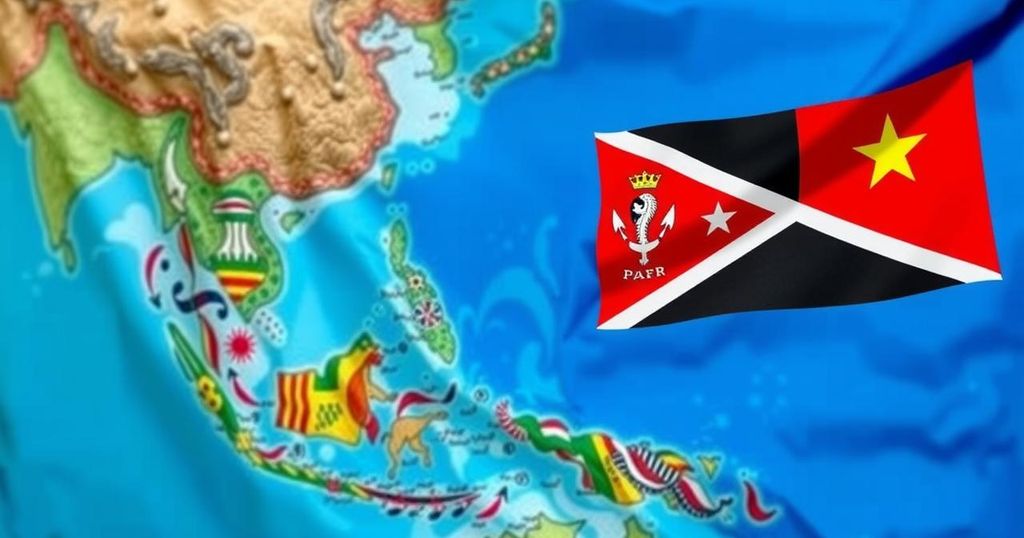On October 31, Papua New Guinea announced it would boycott the upcoming COP29 climate summit in Azerbaijan, describing the event as a “total waste of time” due to ineffective negotiations and the actions of major polluters. Foreign Minister Justin Tkatchenko criticized the lack of progress over the last three years, stating that funds intended for climate relief often end up in consultancy fees instead. He emphasized the need for bilateral agreements with supportive nations like Singapore, while expressing solidarity with other vulnerable Pacific island nations.
Papua New Guinea has declared its intention to boycott the upcoming COP29 climate summit, expressing strong criticism towards the current framework of negotiations aimed at addressing global warming. Foreign Minister Justin Tkatchenko articulated that the summit has become ineffectual, labeling it a “total waste of time” due to the perceived inaction by major pollutant nations. He emphasized the futility of participating in forums where substantive progress is lacking, citing fatigue from travel and a lack of tangible results. Papua New Guinea, which houses the world’s third-largest rainforest, is acutely aware of the impacts of climate change, as rising sea levels and natural disasters threaten its vulnerable environment. The Foreign Minister denounced the empty rhetoric from large polluters who commit financial resources but fail to translate promises into meaningful action, stating, “We are sick of the rhetoric as well as the merry-go-round of getting absolutely nothing done over the last three years.” His sentiments reflect a broader disillusionment within the climate talks community, wherein developing nations have long awaited concrete actions rather than promises. Mr. Tkatchenko revealed that Papua New Guinea would instead prioritize bilateral negotiations with like-minded countries, such as Singapore, to achieve more impactful climate agreements without the obstacles often encountered in multilateral talks. Papua New Guinea also partakes in significant international legal proceedings aimed at ensuring accountability for climate inaction, aiming to pressure industries to fulfill their climate obligations. In light of previous COP meetings’ ineffectiveness, Mr. Tkatchenko remarked, “Why are we spending all this money going to the other side of the world going to these talkfests?” His call for a boycott was supported by other Pacific nations, echoing a collective plea for urgent and actionable climate leadership.
The global climate summits, notably the Conference of the Parties (COP), have been pivotal in establishing international climate agreements such as the Paris Agreement of 2015. However, subsequent summits have faced increasing scrutiny over their effectiveness, particularly regarding the actions of major polluting countries. Many developing nations, like Papua New Guinea, feel marginalized in these discussions, often receiving inadequate support for climate adaptation and mitigation efforts despite being on the frontline of climate threats. The sentiment that these conferences have devolved into unproductive discussions rather than yielding concrete outcomes has led some nations to reconsider their participation. This growing disappointment also blends with calls for more localized, targeted climate negotiations that can potentially facilitate faster, more responsive actions to climate issues.
Papua New Guinea’s decision to boycott COP29 underscores a growing frustration among smaller nations facing the dire consequences of climate change. The call for a boycott reflects a demand for more effective and immediate climate action, challenging the status quo of international negotiations that have frequently fallen short. As prominent voices like Foreign Minister Justin Tkatchenko call for a shift towards direct partnerships with accountable nations, the COP framework faces substantial criticism for its efficiency and responsiveness to climate action demands.
Original Source: www.straitstimes.com






